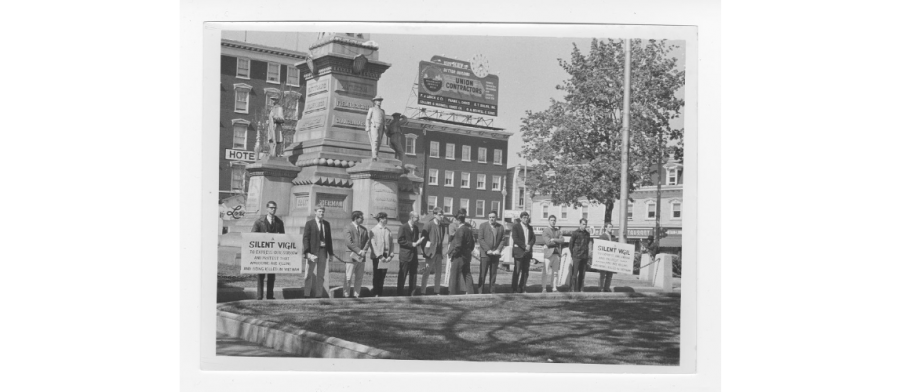Peter Newman ’73 spent his freshman year at Lafayette at a time when protests pervaded across campus in reaction to the Vietnam War. He said protests at the time halted activities across the college.
Now a part-time instructor of English at Lafayette, Newman said this semester has been the most politically active he has seen in the nine years he’s been teaching at Lafayette.
As a freshman during the 1969-70 year, Newman participated in extensive protests on campus that attacked the U.S. government’s actions in Vietnam. Campus activism has seen a steep rise in recent weeks, especially after the presidential election result.
“I think there are similarities now,” he said, “because certainly there are many groups of students who feel very threatened at this point in time, when all of the sudden these issues become personal, we tend to get more and more involved.”
He added that for others, it’s not just about the personal threat. Their friends and loved ones are also facing threat and potential discrimination, he said.

However similar the threat, he said that the reaction during his freshman year at the college was more large-scale than what has been seen this semester.
“It’s hard to compare [protests from the Vietnam war and today’s] because when we’re talking about the strike of 1970 that pretty much shut down part of the college,” he said.
According to Newman, about half to two-thirds of the college went on strike starting in the fall of 1969. The students did not attend classes, and devoted their days to “strike-related activities,” such as putting out a daily “strike newspaper” coordinated with colleges across the nation.
The Lafayette reported in 1970 that students – and almost the entire college community – had marched out of class to rally on the quad.
Lafayette only became coeducational college the next year, so the all-male student body also faced the draft into the military, Newman said. Other causes for protest included making the school coeducational and protesting the ROTC requirement.
Newman added that college officials themselves accommodated the students on strike during the war. Professors often made arrangements for students who chose not to go on strike from class.
“The faculty and administration were very supportive of the strike,” he said. “What you could do is you could take your grades from a midterm, and keep that as your grade. Or make an arrangement with your professor to figure out some kind of alternative, but the idea was you were focused on the anti-war movement at that time.”






































































































